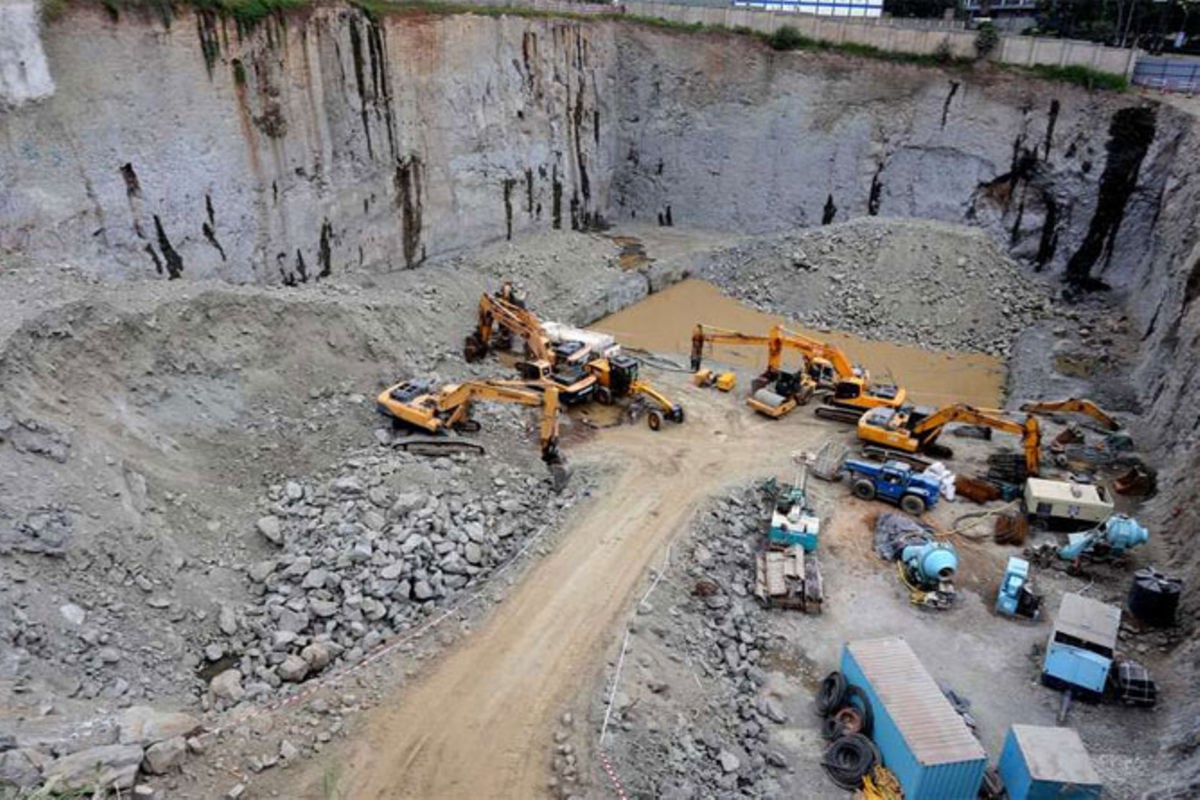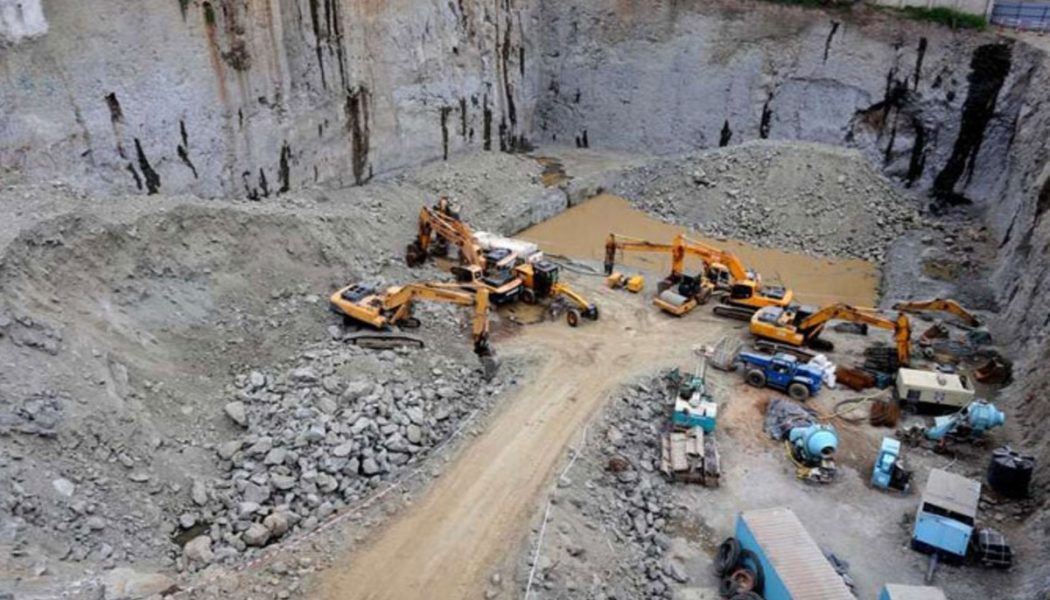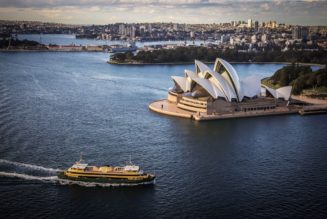
Years after its plans to construct Africa’s tallest building in Nairobi building fell through, Jabavu Village Limited is facing battles from several fronts over alleged debts and breach of contracts arising from the project.
Jabavu Village had planned to build the tallest building in Africa in Nairobi’s Upper Hill area, dubbed the Pinnacle Project.
The Pinnacle Project was a mixed-use development consisting of four basements, a 5-storey mall, an approximately 45-storey hotel building, and a 68-storey commercial/residential building as per documents filed in court.
The plans for the Sh20 billion fell through largely over the burden of financiers and a court case over a piece of land that the contractor planned to use for storage of construction equipment.
The latest case was triggered by a demand sent to the company by Credit Bank demanding payment of $9,520,996 (approximately Sh1.23 billion).
The lender contracted Bespan International Ltd to collect the debt and sent a letter on June 24, 2024, demanding payments within seven days, failure to which the debt collector would auction the land.
Jababu Village Ltd rushed to court under a certificate seeking to block the planned auction.
The firm through lawyer Kiprop Chesergon said in the application that High Court judge Alfred Mabeya had granted a temporary injunction last year, restraining the lender and Purple Royal Auctioneers from interfering, selling, or taking over the parcel of land in Upper Hill.
“Despite the clear and unequivocal terms of the order, and in a bid to undermine the authority of the court, the 1st respondent has proceeded to instruct the intended 3rd defendant (Bespan International), who now purport to auction the suit property in contravention of the court orders,” Mr Kiprop said in the application last month.
In November last year, the company stopped a statutory demand by the lender of a debt of Sh578 million.
In the application, the firm said it cannot be considered to be insolvent as the value of its assets exceeds the alleged debt.
Jabavu Village stated that it was undertaking a housing project where it expected to receive Sh7.68 billion and that the lender was aware of the project and the actions the firm was taking to improve its liquidity and cash flow for purposes of the project.
In opposing the case, Credit Bank argued that the firm had admitted to the debt and that the same was secured.
According to the lender, it was at liberty not to enforce the securities that it holds and that it was within its right to institute alternative recovery methods such as insolvency proceedings.
Last month, another judge dismissed yet another case filed by design and consultancy companies based in Dubai, who claimed to have been contracted to undertake civil and structural works at a fee of $1.25 million in the construction of the skyscraper.
Meinhardt (Singapore) PTE Limited and Meinhardt (Turkey) Engineering and Consulting LLC had sued Jabavu Village Ltd alongside White Lotus Projects Limited, White Lotus Projects Incorporated as well as Poosapati Sita Ramachandra Raju.
The Dubai firms had also sued the directors of Jabavu Village Ltd Mr Abdulkadir Ahmed Hussein and Mr Ahmed Ali Abdi.
The Dubai-based firms stated that were hired for engineering designs for the Pinnacle project.
However, the work was aborted due to feasibility constraints, leading to a subsequent engagement for the engineering design for a mixed residential and commercial scheme.
The firms said the total contract amount was $1.4 million (Sh190 million) and a further $831,000 (Sh107 million) for the design of safety, security, lifts, and lighting.
The Dubai-based firms accused White Lotus Projects Ltd of breach of the contracts and failing to pay for the services rendered and in letters dated July 4, 2018, and July 17, 2018, the contractors issued notices of suspension of works due to non-payment of fees.
Further, in another letter on November 26, 2018, the contractors notified White Lotus Projects Ltd of its breach of contract and intention to termination the services.
The Dubai firms contend that the use of the two separate entities was deliberate and aimed at defrauding the service providers who were contracted by the White Lotus Projects Ltd, a shell company with no known assets, and that the defendants acquired its services with no intention of paying for the intellectual property.
The firms sought payment of special damages of $280,000 and another $1,009,799 for general damages for deceit and fraud and a permanent order of injunction restraining the Defendants from using their engineering designs.
Jabavu Village Ltd stated that the allegations by the Dubai firms were speculative, wild, and amounted to conjecture.
It further stated that it had no legal or contractual relationship with the Dubai firms at all.
Jabavu Village further denied that there was any collusion or conspiracy as alleged and termed the claims as a total fabrication.
While dismissing the case, Justice Josephine Mong’are said after looking at the evidence, that she was inclined to agree with the defendants that the Dubai-based firms did not set out any cause of action against them as arising from the subject contracts.
The judge said an attempt by the firms claiming that Mahat Noor, a director of Jabavu Village Ltd and who signed a letter on March 5, 2019, as a director of “White Lotus Projects Kenya”, was so far remote and does not bring the defendants within the privity of the subject contracts.
“The Plaintiffs’ accusations that the Defendants benefited from the subject contracts were threadbare and without proof. It is for these reasons that I agree with the Defendants that the suit against them has no legs on which it can stand and collapses at this point,” said the judge.









